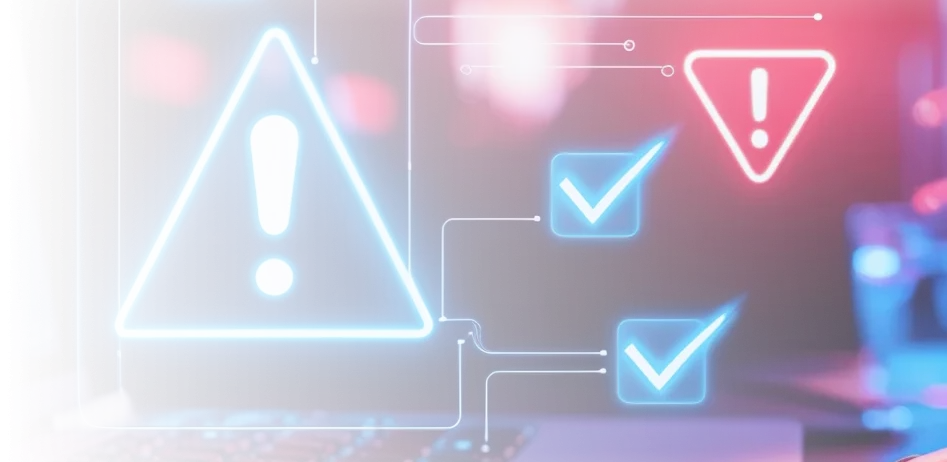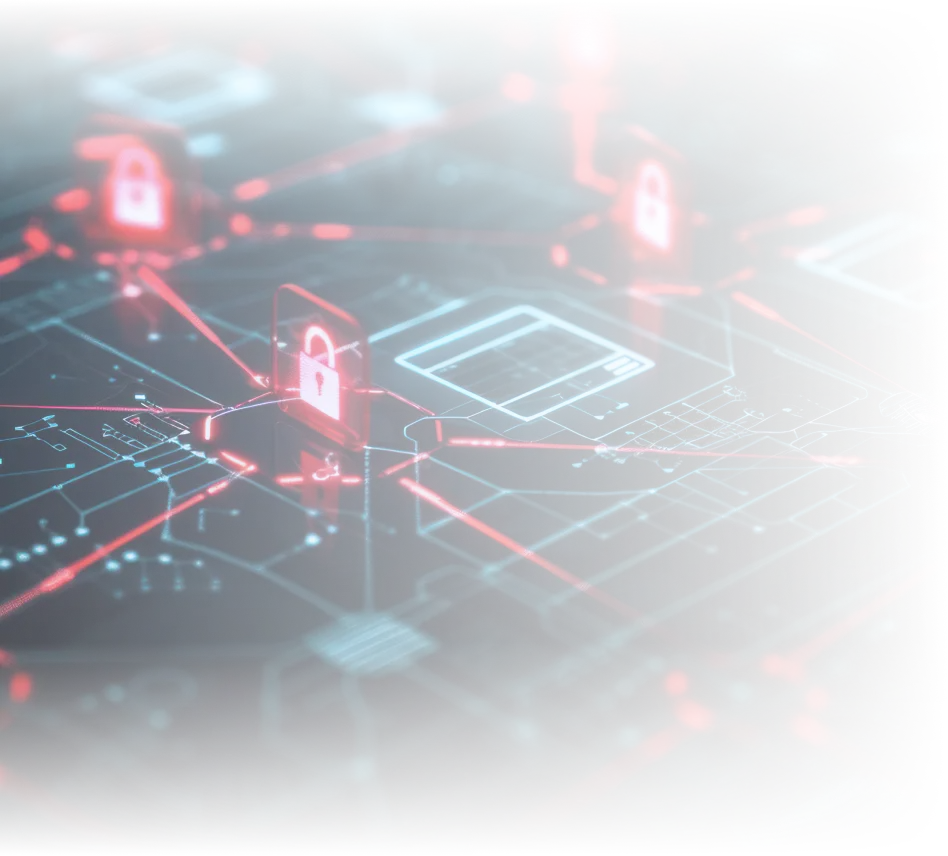Multi-Factor Authentication (MFA) and Why It’s Necessary for Your Company’s Cybersecurity

After considering the risks of your company’s sensitive data being accessed by cybercriminals and sold on the Dark Web, your operations being disrupted due to cyberattacks, and your partners and clients not willing to take that risk with you anymore, you start thinking: maybe losing years of your life to Multi-Factor Authentication isn’t that bad after all?
MFA – a Comprehensive Protection or Just a Helping Hand?
Multi-Factor Authentication (MFA) is an added layer of security that serves as a fundamental defense against the most common cyber threats such as data breaches. By requiring users to authenticate using two or more methods, such as SMS, authentication apps, biometrics, or hardware tokens, MFA ensures that even if a password is compromised, an attacker can’t easily access critical systems. But not all MFA implementations are created equal, and relying on a single method leaves your organization vulnerable.
In 2021, Microsoft reported that over 10,000 organizations globally were affected by a phishing campaign that bypassed Multi-Factor Authentication. Attackers intercepted one-time passwords (OTPs) using reverse-proxy sites, gaining unauthorized access despite MFA protections. This incident sent a shockwave through the cybersecurity community, raising the alarming question: Is MFA enough?
Although MFA is considered a cornerstone of modern cybersecurity, it’s not invincible. Attackers are evolving, finding even more advanced ways to exploit human error and technical vulnerabilities. For CISOs, the stakes are higher than ever. FS Group, with its expertise in countering advanced cyber threats, offers a comprehensive range of services and products to strengthen your MFA strategy and ensure your organization stays ahead of these evolving risks.
MFA correlates with larger cybersecurity strategies, acting as the foundation for more advanced protections:
- Zero Trust Model and Identity and Access Management (IAM): This is where MFA is crucial. FS Group’s DeepInk enhances this approach by continuously verifying identities before granting access, ensuring no implicit trust is placed in any user. FS Group’s BP Feed prevents cybercriminals who use anonymized IP addresses from entering your systems, allowing only trusted identities to access your infrastructure. Constant validation and deanonymization protects your company’s sensitive data from being accessed by unauthorized users.
- Threat Intelligence and Incident Response: MFA provides essential data to threat intelligence systems, flagging suspicious login attempts. FS Group’s DeepCobalt can analyze these attempts in real time, alerting your security team before any damage is done. In case of a bypass, FS Group’s Incident Response Team (IRT) steps in to mitigate the threat immediately.
- Cloud Security: As cloud adoption grows, so does the need for MFA. For businesses operating in hybrid or cloud-native infrastructures, MFA mitigates the risks associated with compromised credentials. With FS Group’s Penetration Testing Services, we can ensure your MFA configurations are optimized for cloud environments, reducing the risk of breach.
- Compliance and Regulatory Requirements: Regulatory frameworks such as GDPR, HIPAA, and PCI-DSS demand strong access controls. MFA is often a baseline requirement for compliance, and FS Group offers Compliance Pentest to ensure secure transactions and help organizations meet global security standards by securing critical access points.
Statistics show that 81% of data breaches are the result of weak or stolen passwords. If you’re not using MFA (or aren’t using it effectively) you’re making it easy for cybercriminals to enter your network.
Threats That Bypass MFA: You’re Still at Risk

We’ve said it once and we’ll say it again: MFA is not bulletproof. Attackers are continually finding ways to bypass it, exploiting both human weaknesses and technical loopholes.
- MFA Interception: Phishing, malware, and man-in-the-middle attacks can intercept OTPs and passwords. For example, the recent Microsoft breach saw attackers steal session cookies to bypass MFA altogether.
- MFA Fatigue: In what’s known as “MFA fatigue,” attackers spam users with repeated MFA requests until they approve them out of sheer frustration. Once approved, attackers gain access.
- Brute Force Attacks: Attackers may also exploit vulnerabilities in code delivery systems, such as brute-forcing 6-digit codes, leaving MFA vulnerable to attacks.
Are you continuously testing for these vulnerabilities? If not, your organization remains at risk.
The Consequences of an MFA Bypass
- Financial Damage: A successful MFA breach can lead to massive financial losses. Data breaches resulting from compromised accounts cost organizations millions more than $4 million on average per incident, according to IBM’s Cost of a Data Breach Report. Can your company afford this level of risk?
- Operational Disruption: When an attacker bypasses your MFA, your data and your entire operation are at risk. Operational downtime and data breaches can leave you paralyzed for days or even weeks. FS Group’s IRT works around the clock to restore operations swiftly in case of a breach. But is your current system ready to prevent such an attack in the first place?
- Reputation Damage: Once a breach becomes public, your reputation takes a hit, and regaining trust can take years. In addition to GDPR and CCPA penalties, the cost of lost trust and reputational damage can have long-term financial implications.
Assess How Efficient Is MFA at Your Organization
Ask yourself these critical questions:
- Is Your MFA Multi-Layered? MFA shouldn’t rely on just one method. You need to evaluate if your MFA uses a mix of biometrics, app-based authentication, and hardware tokens. FS Group’s DeepInk provides an advanced API for managing these varied forms of authentication.
- Do You Monitor MFA Activity? Monitoring MFA logs for suspicious activity is crucial. With FS Group’s DeepCobalt, organizations can continuously track authentication attempts, alerting you to suspicious logins before they escalate.
- Do You Regularly Test Your MFA for Vulnerabilities? Even the best MFA system can be outpaced by evolving threats. Regular penetration testing ensures your MFA is capable of handling today’s attackers. FS Group specializes in Pentest and Vulnerability Assessments, helping you identify and close security gaps.
Even if things aren’t looking good after you’ve thought them through, it’s not too late to improve your MFA and implement a comprehensive security strategy that will work alongside MFA. Keep in mind that relying on MFA alone will eventually result in workflow disruptions and financial losses due to cyberattacks.
FS Group Identified and Mitigated System Vulnerabilities of a European Bank That Could’ve Been Exploited to Bypass MFA

A big European online bank preparing to enter new markets needed to ensure its mobile application was secure against potential cyberattacks. They knew: MFA alone wasn’t enough to comprehensively protect a fintech company from data breaches. As part of their security strategy, they relied on FS Group’s expertise to perform a BlackBox penetration test on their Android, iOS, API, and web resources.
The Challenge
Even with MFA in place, the bank needed to ensure there were no vulnerabilities in their authentication systems or broader infrastructure. Financial institutions are prime targets for cyberattacks, and the company sought FS Group’s help to identify hidden flaws that could lead to significant financial and reputational damage.
The Solution
FS Group conducted a thorough penetration test that revealed 2 critical and 4 high-risk vulnerabilities that could have been exploited to bypass MFA.
The Result
By uncovering these vulnerabilities early, FS Group helped the bank prevent a potential financial loss of tens of millions of dollars. The identified flaws were swiftly mitigated, ensuring that MFA, along with other security measures, could function effectively to protect both customer data and the company’s operations as they expanded into new markets.
FS Group provides comprehensive products and services that ensure long-term cyber protection for critical infrastructure organizations by preventing unauthorized access, detecting anomalies, vulnerabilities, and mitigating potential threats.
What To Do Right Now to Enhance Your MFA?
To ensure your MFA system is as resilient as possible, it’s essential to do more than just basic implementation. Here are five immediate steps you can take to strengthen your MFA and better protect your organization from unauthorized access and data breaches:
- Diversify your MFA methods by using a combination of secure methods such as app-based authentication, biometrics, or hardware tokens.
- Implement adaptive MFA to tailor the level of authentication required based on user behavior and contextual data.
- Monitor MFA logs for suspicious activity to detect abnormal login attempts or patterns.
- Regularly test and update your MFA system to ensure it stays effective against evolving cyber threats.
- Attackers are constantly finding ways to bypass MFA and it’s crucial to implement other security measures alongside MFA, such as continuous threat monitoring, Zero Trust Model, and real-time incident response. These additional layers ensure that even if an attacker bypasses MFA, there are still robust defenses in place to detect and contain the threat.
Now is the time to take action. With over 11 years of experience, a track record of resolving 500+ cyber incidents, and expertise gained from the ongoing russian-Ukrainian cyberwar, FS Group experts are experienced in protecting organizations from the most advanced cyber threats and ensuring business continuity, even if your business is facing massive complex attacks. We provide our clients with knowledge, vigilance, and foresight to protect their assets and data. By having FS Group as your cybersecurity partner, you receive a proactive, multi-layered approach to security that goes far beyond MFA.
Contact FS Group today and let us build a stronger, more resilient cybersecurity posture for your company. Don’t wait until an attack happens – take control now.